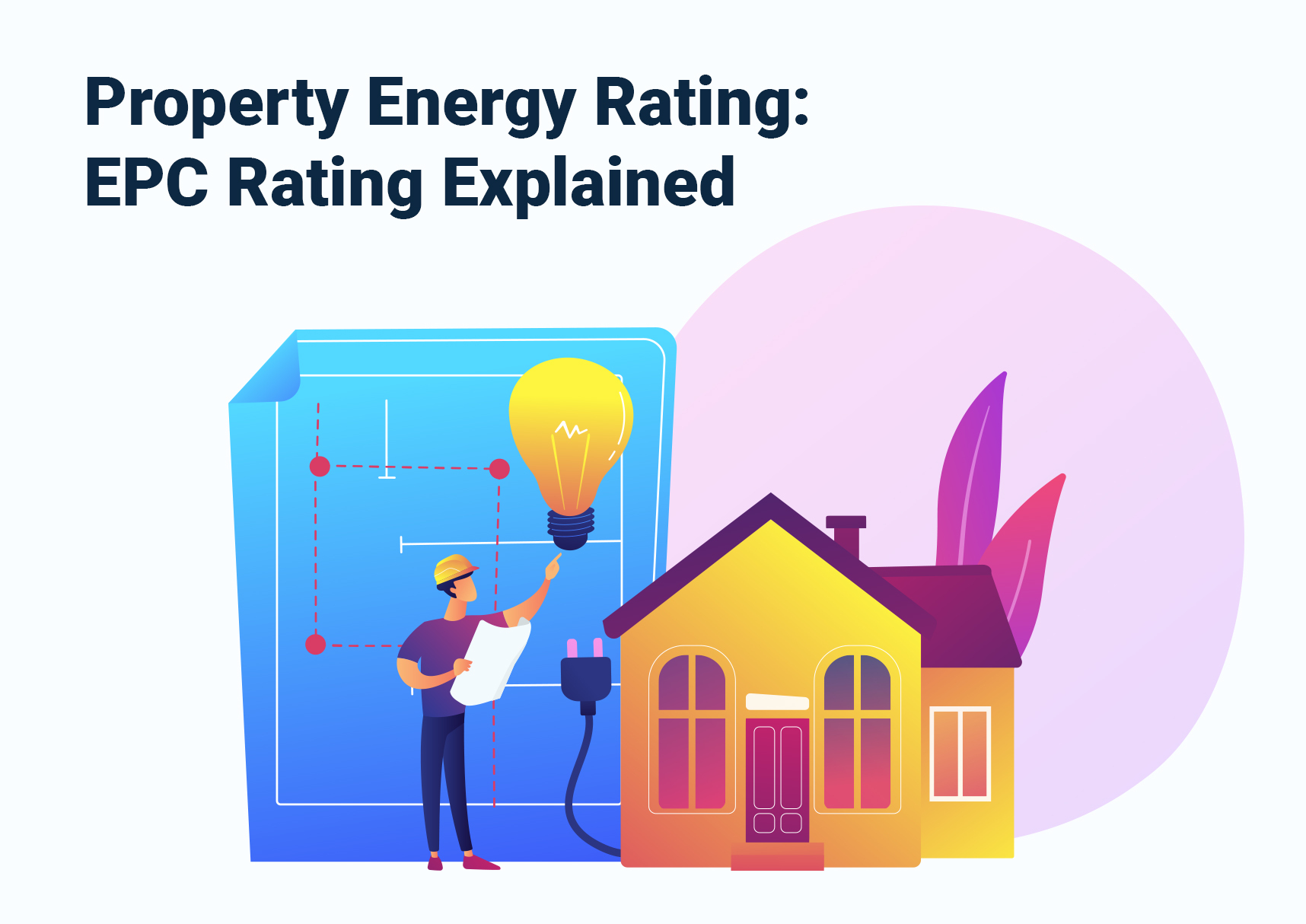Property Energy Rating: EPC Rating Explained

In this article, we take a deeper look at property energy rating, what it means and why an EPC is important.
The Energy Performance Certificate (EPC) is an important part of buying, selling, renting and owning a home.
Essentially, an EPC is a review of a property’s energy efficiency that potential homeowners or tenants can use to see how much their energy bills are likely to cost.
What is a Property Energy Rating?
Properties in the UK are given an energy performance certificate (EPC). An EPC acts much like the multi-coloured sticker on a new appliance, giving information about a building’s energy rating. This rating gives an indication of how costly a building will be to heat and light, as well as the amount of carbon dioxide emissions it will emit.
What Information is Contained in an EPC?
In a property energy rating, the EPC is a scale from “A” – very efficient – to “G”, inefficient. The more energy efficient a property or household, the less it will cost to run. An EPC will also provide information on what the energy efficiency rating could be if improvements were made to your home.
The figures created in the assessment and potential improvements or savings shown in an EPC reflect a typical household and are not tailored to the current owner, potential tenant or their lifestyle.
How can I get an EPC? 
An EPC is carried out by an accredited assessor, who will undertake a brief survey on your home before producing the EPC certificate. EPC certificates are valid for 10 years and the property is placed on a colour-coded scale, or EPC band, from A to G (“A“ having the cheapest fuel bills because it is more efficient to run).
A property’s EPC rating depends on the following:
- The amount of energy used in the property in m²
- The level of carbon dioxide emissions (given in tonnes per year) the home will emit
Factors contrbuting to the property energy rating include things like the material the building is constructed from, heating, cooling and ventilation use and the lighting and hot water systems in the property. To calculate the property energy rating, the qualified assessor will compare the emissions of the building with a reference building of the same size constructed to a similar, specified standard.
Why is an EPC important?
An EPC must be made available to potential buyers or tenants as soon as your property is placed on the market for sale or rent. Having a registered energy assessor create an EPC allows a potential buyer or tenant to compare the energy efficiency of different properties.
An EPC will highlight the energy improvements you could make, their cost and how much you could save in energy bills, which can be helpful if you are looking to renovate a property or make improvements to your home. If you do implement energy efficiency improvements, you’ll need to get a new EPC conducted to reflect the changes.
How do I Find the EPC Rating Check for a Property?
A property’s EPC can be accessed online for free via the EPC register. A prospective buyer is not liable to pay for an EPC, it is the responsibility of the seller of a property or landlord to provide a valid EPC. If you own a property, you can find the EPC for your property or others free of charge via the UK government website.
What is a Good Energy Rating for a Property?
When you receive an Energy Performance Certificate, the first section will highlight the property’s estimated energy cost based on lighting, heating and hot water (based on energy prices at the time EPC was issued).
With the current increase in energy prices in the UK, you may find that EPCs for homes you are interested in investing in may be out of date, meaning you or your tenants may pay more than the estimate listed on the EPC. Running costs don’t include extra appliances like computers and TVs which can all add to costs, particularly with more people working from home.
On the energy efficiency certificate rating scale, “A” is the most efficient rating. Whereas “G” is the worst. Properties with an “A” rating will have the lowest running costs. EPCs also give properties a “potential rating”. This indicates how efficient the house energy rating could be if suggested EPC improvements are implemented.
Does EPC Rating Affect House Prices?
According to Moneysupermarket.com, based on average property prices in England, there is a correlation between higher energy efficiency ratings and house prices. Properties that raised their EPC from a “G” to an “A” rating saw property value increase by as much as 14%.
The greatest percentage increase in value was seen in the North East. Improved efficiency ratings saw property value increase 12.2%, equating to £16,219. Most research has shown a more noticeable discount for properties in the lower “F” or “G” bands.
That said, the majority of estate agents suggest that energy efficiency has only a modest influence on house prices. The impact is only seen for properties in the best and worst energy efficiency ratings. Future trends suggest that more people will attach higher value to energy efficiency. Particularly with soaring energy prices and climate change obligations.
Do you Need an EPC to Rent a Property?
EPC came into law in 2008. Therefore, any landlord renting a home since then should ensure the property has an EPC. The landlord or property owner is responsible for obtaining the EPC. Also, having a copy of the certificate to show potential clients.
Since 2018, additional changes require landlords to achieve a minimum of “E” on the EPC scale. This is in order to rent out their property. If a landlord’s property rates below this benchmark, they will need to make the necessary energy-saving improvements. Such as obtaining a new EPC to show they meet the minimum standards.
Landlords that fail to meet the standards as required by law can face a fine of up to £4,000. Unless there is an exemption on the property.
What Types of Buildings are Exempt from an EPC?
Not all buildings in the UK need to to have an EPC. Buildings that are exempt from this include:
- Listed buildings
- Places of worship
- Industrial sites and workshops
- Temporary buildings that will be in use for 2 years or less
- Holiday accommodation rented out for less than 4 months of the year
- Residential buildings intended to be used 4 months of the year or less
Is an EPC Certificate a Legal Requirement?
By law, all domestic buildings in the UK for purchase or rent must have an Energy Performance Certificate (ECP). Some buildings are exempt from the EPC. Including listed buildings that cannot have upgrades. Such as double glazing and holiday accommodation that is rented out for less than 4 months of a year.
An Energy Performance Certificate (EPC) is needed whenever a property is built, sold or rented. Property owners must order an EPC for potential buyers and tenants before they market their property to sell or rent.
When it comes to property energy ratings, getting an EPC is a legal obligation for home sellers and landlords. Having a qualified assessor rate for your home can tell you the likely cost of running the household. Especially in terms of energy costs and give you information on improvements that you can make. Improvements that can help increase its efficiency and reduce carbon emissions. To find out more about property energy rating or to talk to one of our property experts, get in touch.

